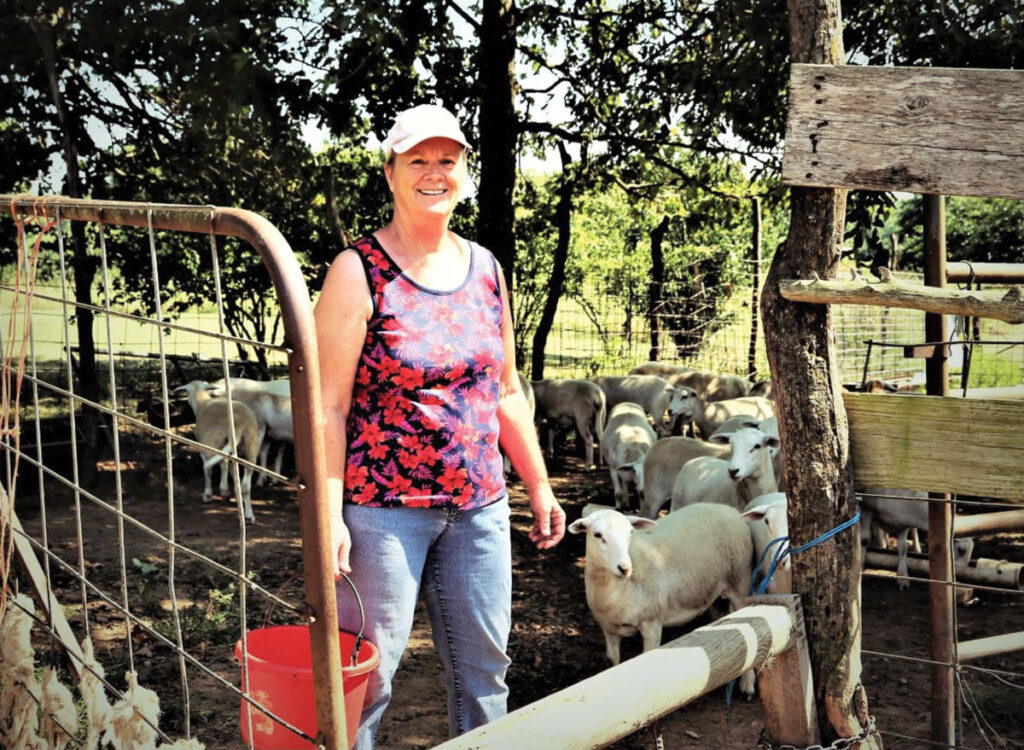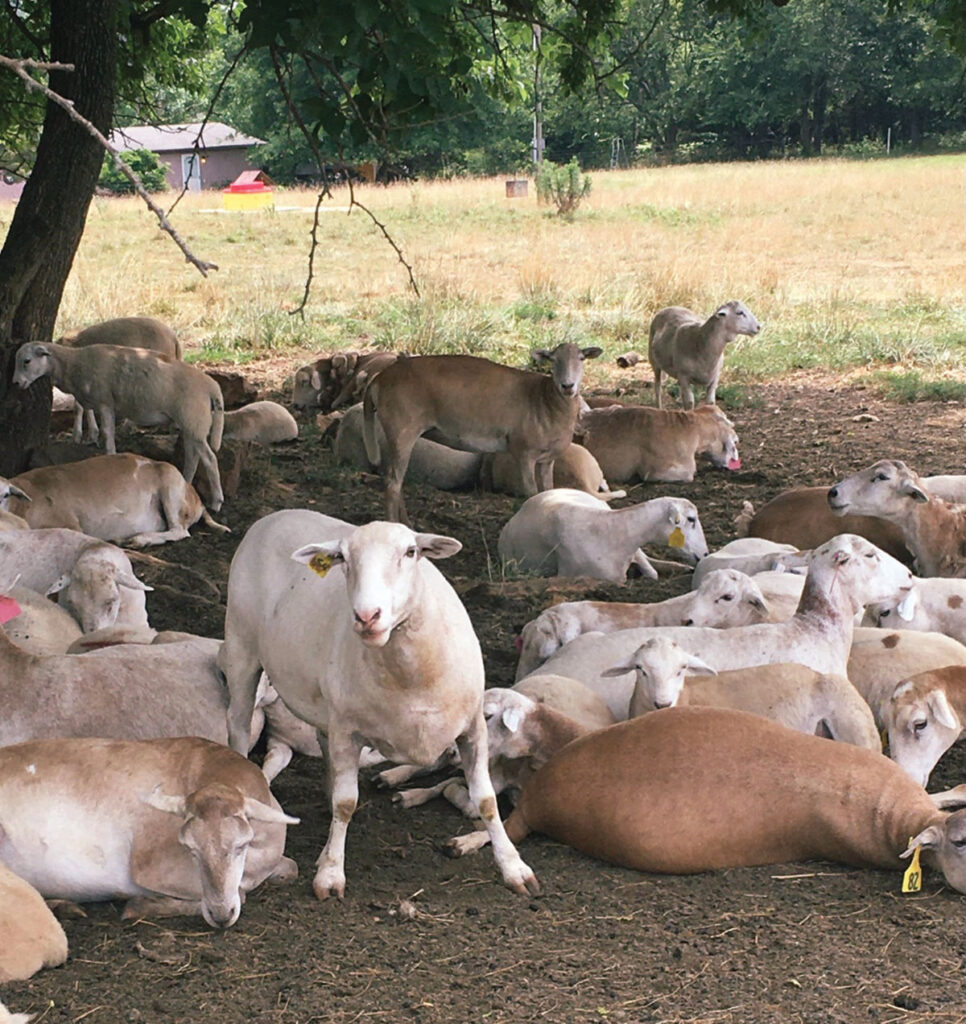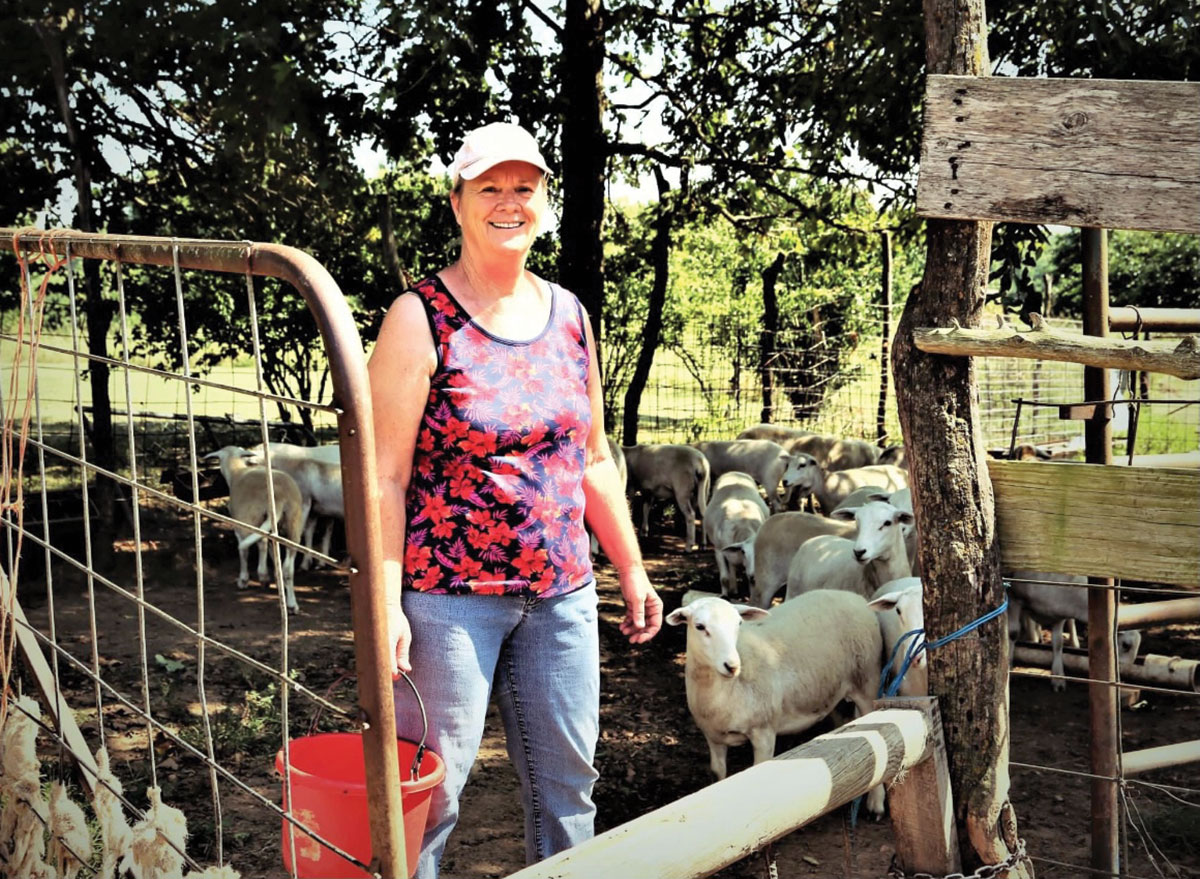
A surprise from her husband has brought Sharon Corum decades of joy
WILLARD, MO. – Career educator and self-described animal lover, Sharon Corum, cited love of her sheep as the primary motivating factor that has kept her shepherding her Katahdin flock for almost 20 years.
Larry and Sharon Corum live on a farm in rural Willard, Mo., where they also have Angus cattle.
Sharon’s childhood growing up on a dairy farm in Pleasant Hope, Mo., and later a beef farm in Halfway, Mo., came in handy when years later Larry came home one day and surprised her with 11 head of Katahdin sheep.’
Larry purchased the sheep from a client who was seeking respite care and could no longer care for them.
“It was a real learning experience,” Sharon said. “I thought we had more than enough to do here on the farm when we got the sheep, but it was too late, I was smitten. There’s nothing cuter that a baby lamb. I fell in love with them and I have been their primary caretaker most of the time.”
Sharon currently has 30 ewe, a ram and 26 ewe lambs that have already been sold.
She sells her ram lambs when they reach 4 to 5 months or before they are fertile.
“You have to sell the boys soon,” Sharon noted. “I keep my girls longer so the mommas can wean gradually. I think it’s better for their bags. My ewe babies were all sold to one individual.”
Sharon sells independently through advertising and word of mouth. She also has people who come to the farm looking for replacements. Anything she doesn’t sell is taken to the sale barn in Lockwood, Mo.
Sharon is a retired English teacher, so when she wasn’t working on the farm she was a teaching full-time. She taught at Everton, Pleasant Hope and retired from Marion C. Early in Morrisville, Mo., in 2016.
“When I was getting close to retiring, I went to Marion C. Early and taught with my daughter who is a history teacher there,” Sharon said.
The sheep are primarily grass fed, however, during a drought they get Timothy and Orchard grass.
“I want them to have all they need at all times,” Sharon said.
The sheep are turned out to graze on 160-acres of mixed grasses. They get a dab of grain for control. When the ewes are in heavy gestation, Sharon supplements with a dairy grain and during their first months of nursing they are grained heavily.
Larry occasionally plants fall cover crops. Last year he planted turnips and rye.
“I retired to work real hard,” Sharon said with a chuckle.

She admits retirement has slightly changed the way tends her herd. She does some culling and selective breeding and she’s a precise record keeper.
“I’ve always kept records, but after retirement I began keeping meticulous records,” Sharon said. “I can tell you when a ewe lambed, if she had difficulty, did I assist, did she have a boy or girl. I write everything down.”
Sharon also utilizes a Bracchus shield anti-mating apron on her ram.
“I’ve recommended the Bracchus apron to several people. Theoretically, ewes can lamb twice a year, and I think that’s just too hard on the mommas; they work too hard.”
Katahdin ewes possess exceptional mothering abilities and lamb easily; lambs are born vigorous and alert.
Sharon assisted with four births this spring. There were 29 ewes that lambed, 51 were live births with one deceased.
“I always error on the side of caution,” Sharon explained. “I watch her and if she’s had one lamb and doesn’t have the next one within 30 minutes, I’m out there checking. I don’t have any problem pulling a lamb if I need to. My girls are so gentle and they know me, I can pull a baby right out in the lot. They’ll let you know if they need help.”
There have been several sets of triplets born on the farm, and Sharon utilizes lambing pens for the babies and new mommas.
As soon as lambs hit the ground they are transferred to a special pen so that the mommas can get her perinatal care of extra feed and rest. She also treats the navels with iodine to combat Joint-ill.
When Sharon was in the early days of keeping sheep, she had a momma that was having real problems. She called Mike Freeze at SoMo and asked him “Mike, how do you know when it’s time to intervene?” and he responded, “she’ll let you know.”
“The lambs brow was hung up on her pelvis, so I pushed him back and that freed the baby to come through the birth canal,” Sharon said.
Sharon planned to get out of the sheep business this year, however, she agonized so much over the decision, she knew her heart would be broken without her Katahdins. She decided to take a rest and try spring breeding this year.
There are some “old girls” on the farm, that will enjoy the rest of their days there.
“I could never part with them they’ve been too good,” Sharon said.







